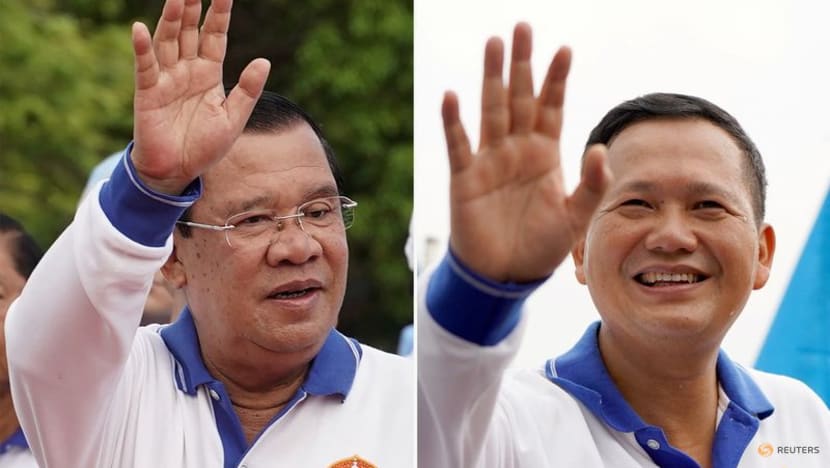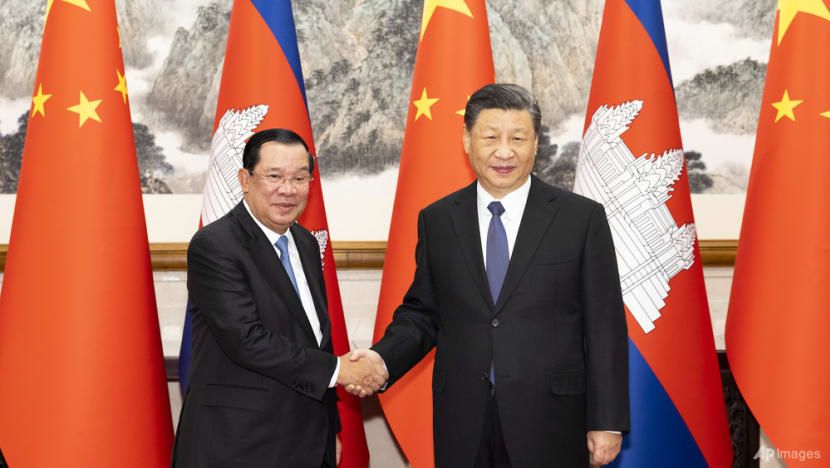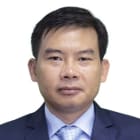Channelnewsasia
The path that Cambodia treads under the leadership of Hun Sen’s eldest son is filled with potential and promise, says Cambodian expert Chheang Vannarith.

PHNOM PENH: After nearly 40 years as Cambodian leader, Prime Minister Hun Sen is stepping aside, handing over power to his eldest son, Hun Manet.
The leadership transition in Cambodia has taken a significant step forward, marking a notable departure from its violent history of power transfers.
After gaining independence from France in 1953, Cambodia has experienced several violent regime changes due to conquest, coups and civil wars. The latest events include the 1970 coup, the rise of the Khmer Rouge regime in 1975, a violent power transition in 1979 and a violent power struggle in 1997.
This time, the shift of power has been remarkably peaceful, with Hun Manet set to assume the role of prime minister on Aug 22, following the Cambodian People’s Party’s (CPP) victory at the Jul 23 election.
The reactions to Hun Manet’s appointment have been mixed: On one hand, there is optimism that Western-educated Hun Manet may improve Cambodia’s testy relationship with the West; on the other, there is concern that Hun Sen will still be running the show from behind the curtains.
While it is still early to fully evaluate Hun Manet’s leadership capacity, we can glean insights into his worldview from his academic background and over a decade of experience as the army chief and head of the CPP youth wing.
HOW WILL HUN MANET STEER RELATIONS WITH US AND CHINA?
Hun Manet, 45, was trained at the West Point military academy in the United States and holds a master’s degree from New York University and a doctorate from Britain’s Bristol University, both in economics.
His exposure to different ideas and approaches is likely to play a role in shaping his leadership style in both domestic and international political landscapes.
The relationship between Cambodia and the US has been tense due to the US’ interference in Cambodia’s democracy and human rights issues.
After the election, the US derided the polls as “neither free nor fair” and announced visa bans on individuals it said had undermined democracy. It also paused several foreign assistance programmes in Cambodia.
“As the ruling Cambodian People’s Party forms a new government, authorities have an opportunity to improve the country’s international standing, including by restoring genuine multi-party democracy, ending politically motivated trials, reversing convictions of government critics, and allowing independent media outlets to reopen and function without interference,” US State Department spokesman Matthew Miller said.
China, Cambodia’s key partner country, on the other hand congratulated Hun Sen on his victory.
Although the Cambodia-China relationship is expected to remain core to the nation’s foreign policy, under Hun Manet’s administration, a robust implementation of hedging and diversification strategies is expected.

Due to economic reasons, Cambodia is naturally inclined to have close ties with China. China is Cambodia’s largest trading partner, and about 35 per cent of everything Cambodia imports come from China. Last year, China also accounted for 90.5 per cent of Cambodia’s total foreign direct investment.
Hun Sen famously said in 2021: “If I don’t rely on China, who will I rely on?”
While Hun Manet’s handover is expected to come along with a leadership reshuffle that could see almost the entire Cabinet replaced by younger officials, Hun Sen has also made it clear that he still holds political power after leaving his post.
Now that the baton has been passed to Hun Manet, the best course of action would be for him to pursue an independent foreign policy. This approach will allow Cambodia to determine its diplomatic course based on what it perceives as best for its citizens and the nation’s development.
By avoiding alignment with any specific power bloc or forming exclusive alliances, Cambodia can preserve its autonomy and sovereignty in the international arena.
Central to Cambodia’s foreign policy will be a commitment to abide by international law and norms. This includes respecting the principles enshrined in the United Nations Charter, such as territorial integrity, non-interference in internal affairs of other nations, and peaceful dispute resolution.
It is expected that Cambodia will continue to engage in open and inclusive multilateralism, which involves active participation in international organisations, forums and initiatives that address global challenges such as climate change, poverty alleviation and global health.
PRIORITISING CAMBODIA
At the same time, Hun Manet’s administration is expected to prioritise Cambodia’s national strength and interests in its foreign policy considerations. This entails leveraging the country’s resources, economic potential, and strategic location to pursue opportunities that contribute to Cambodia’s development and well-being.
Foreign policy decisions will be guided by a keen understanding of Cambodia’s internal priorities and how international engagement can support those goals.
A secure and resilient economy is vital for national stability and sovereignty. By prioritising economic diplomacy and security, the message Hun Manet will send is that he acknowledges the critical role economics plays in shaping politics, while also recognising that domestic politics significantly influences foreign policy.
To enhance economic security, the government will likely implement policies that diversify the economy and reduce over-reliance on specific sectors or trade partners. This may include efforts to bolster the agriculture, manufacturing and services sectors while investing in technological advancements and innovation to boost productivity.
The government would do well to work to create a favourable business environment that attracts both domestic and foreign investments. This involves streamlining regulations, improving infrastructure, promoting transparency, and combating corruption.
In addition to proactive economic diplomacy and economic security measures, it is essential to consider how domestic political stability interacts with foreign policy. A stable domestic political landscape ensures that the government can focus on economic development and international cooperation without being hampered by internal strife or conflicts.
Thus, promoting political unity and social cohesion within Cambodia will be a priority for Hun Manet’s administration.
POTENTIAL AND PROMISE FOR HUN MANET’S LEADERSHIP
The path that Cambodia treads under Hun Manet’s leadership is filled with potential and promise. But the road ahead will also present new challenges, and Hun Manet will undoubtedly need to navigate them with resilience and adaptability.
By embracing a cautious reformist approach, valuing diverse perspectives and fostering a balanced foreign policy, Hun Manet can pave the way for Cambodia’s emergence as a responsible and respected member of the global community.
With a collective and thoughtful leadership, Cambodia’s path towards progress can be firmly set.
Chheang Vannarith is President of the Asian Vision Institute, an independent think tank based in Phnom Penh.












